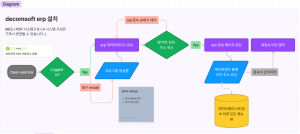ERP Software: Transforming Business Operations in Korea
Introduction
In the fast-paced world of Korean business, staying ahead of the competition is essential. One of the key tools that companies are increasingly relying on to streamline their operations and gain a competitive edge is Enterprise Resource Planning (ERP) software. In this article, we will delve into the world of ERP software and explore how it is transforming business operations in Korea.
What is ERP Software?
Understanding ERP
ERP software, or Enterprise Resource Planning software, is a comprehensive suite of integrated applications that help organizations manage and automate a wide range of business processes. These processes can include everything from finance and human resources to supply chain management and customer relationship management.
The Core Components
At its core, ERP software consists of several key modules, each dedicated to a specific business function. These modules often include:
- Financial Management: Managing accounting, budgeting, and financial reporting.
- Human Resources: Handling employee data, payroll, and benefits administration.
- Supply Chain Management: Optimizing procurement, inventory management, and order fulfillment.
- Customer Relationship Management: Enhancing customer interactions, sales, and marketing efforts.
The Benefits of ERP Software
Improved Efficiency
One of the primary advantages of implementing ERP software in Korean businesses is the significant improvement in operational efficiency. By automating various processes, employees can focus on more strategic tasks, leading to increased productivity.
Real-time Data Insights
ERP systems provide real-time data insights, allowing businesses in Korea to make informed decisions quickly. This capability is crucial in a rapidly changing business landscape.
Enhanced Collaboration
ERP software fosters better collaboration among departments. Teams can easily share information and work together seamlessly, breaking down silos that can hinder progress.
Scalability
As Korean businesses grow, their ERP systems can scale with them. This scalability ensures that the software continues to meet the evolving needs of the organization.
Implementing ERP in Korea
Overcoming Challenges
While the benefits of ERP software are significant, implementing it in Korean companies can pose challenges. Language barriers, cultural differences, and customization requirements must be carefully considered.
Localized Solutions
Many ERP providers offer localized solutions tailored to the Korean market. These solutions are designed to address specific legal and regulatory requirements, making the implementation process smoother.
Choosing the Right ERP Software
Key Considerations
Selecting the right ERP software for a Korean business requires careful consideration of factors such as:
- Scalability: Ensuring the software can grow with the business.
- Local Support: Access to local support teams for timely assistance.
- Customization: Tailoring the software to meet unique business needs.
- Integration: Seamless integration with existing systems.
The Future of ERP in Korea
Continuous Evolution
As technology advances and Korean businesses continue to embrace digital transformation, ERP software will evolve to meet new challenges and opportunities. It will remain a critical tool for organizations seeking to stay competitive in the dynamic Korean market.
Conclusion
In conclusion, ERP software has become a game-changer for businesses in Korea. Its ability to improve efficiency, provide real-time data insights, enhance collaboration, and scale with growing companies makes it an invaluable asset. However, it’s crucial to carefully select and implement ERP software while considering local nuances. As Korean businesses continue to evolve, ERP software will play a pivotal role in their success.

FAQs (Frequently Asked Questions)
1. What is ERP software?
ERP software, or Enterprise Resource Planning software, is a comprehensive suite of integrated applications that help organizations manage and automate various business processes, including finance, HR, supply chain, and customer relationship management.
2. How can ERP software benefit Korean businesses?
ERP software can benefit Korean businesses by improving efficiency, providing real-time data insights, enhancing collaboration, and offering scalability as companies grow.
3. What challenges can Korean companies face when implementing ERP software?
Korean companies may face challenges related to language barriers, cultural differences, and customization requirements when implementing ERP software.
4. What should Korean businesses consider when choosing ERP software?
Korean businesses should consider factors like scalability, local support, customization, and integration when selecting ERP software.
5. What is the future of ERP software in Korea?
The future of ERP software in Korea involves continuous evolution to meet new challenges and opportunities as Korean businesses embrace digital transformation.
